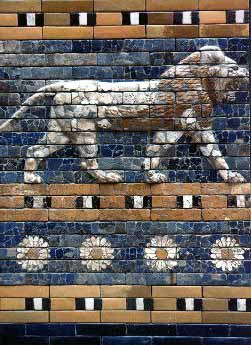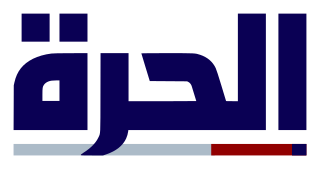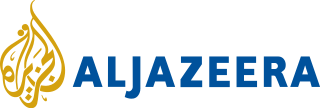Related Research Articles

Iraq was home to the first television station in the Middle East, which began during the 1950s. As part of a plan to help Iraq modernize, British telecommunications company Pye Limited built and commissioned a television broadcast station in the capital city of Baghdad. Following the 2003 US-led invasion of Iraq, the Iraqi state media collapsed. In June 2004, a Communications and Media Commission was set up to approve and grant license for all the country's media. By 2011, Iraq was the headquarters of 49 free-to-air satellite channels, one of the highest numbers in the region. Until 2003, satellite dishes were banned in Iraq, and there was a limited number of national terrestrial stations. After 2003, the sale of satellite dishes surged, and free-to-air channels entered the market. There are 17 terrestrial channels, of which one is funded by the US government through the U.S. Agency for Global Media (Alhurra-Iraq), and seven are owned by the state broadcaster Iraqi Media Network. In March 2011, Al Jazeera was granted rights to resume operations after being banned in 2004. Plans were established to set up a free-media zone based in Baghdad, the Baghdad Media City, by the end of 2014.

Deutsche Welle, commonly shortened to DW, is a German public, state-owned international broadcaster funded by the German federal tax budget. The service is available in 32 languages. DW's satellite television service consists of channels in German, English, Spanish, Hindi, Persian, and Arabic. The work of DW is regulated by the Deutsche Welle Act, stating that content is intended to be independent of government influence. DW is a member of the European Broadcasting Union (EBU).

Al Arabiya is a Saudi state-owned international Arabic news television channel. It is based in Riyadh and is a subsidiary of MBC Group.

Alhurra is a U.S. government-owned Arabic-language satellite TV channel that broadcasts news and current affairs programming to audiences in the Middle East and North Africa. Alhurra is funded by the U.S. government and is barred from broadcasting within the United States itself under the 1948 Smith-Mundt Act.

Al Jazeera English is a 24-hour English-language news channel operating under Al Jazeera Media Network, which is partially funded by the government of Qatar. In a bid to broaden its reach, Al Jazeera introduced an English-language division in 2006. It is the first global English-language news channel to be headquartered in the Middle East.

Arab Radio and Television Network is an Arabic-language television network characterized by its multitude of channels. It is based in Jeddah, Saudi Arabia.

Algeria has more than 45 independent Arabic language and French language publications as well as 4 government-owned newspapers, but the government controls most printing presses and advertising. The Algerian newspapers with the largest circulations are Echourouk (1,800,000), Ennahar (1,600,000), El Khabar (1,000,000) and Quotidien d'Oran (700,000); all four are employee-owned. In 2004 and 2005, the government increased the access of Berber language and culture to both print and broadcast media.
Television in Lebanon arose as a private initiative and not a state-institution. Lebanon was the first country in the Middle East & the Arab world to have indigenous television broadcasting. Various Arab televisions emulated the Lebanese model.
Libyan Jamahiriya Broadcasting Corporation (LJBC) was the state-run broadcasting organization in Libya under the rule of Muammar Gaddafi. It distributed news in coordination with the Jamahiriya News Agency in accordance with state laws controlling Libya media.
Local television is the most significant media platform in Yemen. Given the low literacy rate in the country, television is the main source of news for Yemenis. There are six free-to-air channels currently headquartered in Yemen, of which four are state-owned.

Addounia TV was a private television station based in Damascus, Syria since March 23, 2007. The station is described by some western media as "semi-official" and a "mouthpiece of the government." Addounia TV was a sister channel of Sama TV. The channel was shut down in 2015.
Television in Saudi Arabia was introduced in 1965, but is now dominated by just five major companies: Middle East Broadcasting Center, SM Enterprise TV, Lebanese Broadcasting Corporation, Rotana and Saudi TV. Together, they control 80% of the pan-Arab broadcasting market. Saudi Arabia is a major market for pan-Arab satellite and pay-TV. Saudi investors are behind the major networks MBC, which is based in Dubai, and Emirates based OSN. The Saudi government estimated that in 2000 the average Saudi spent 50% to 100% more time watching television than his or her European or US counterpart. On average, 2.7 hours are spent daily watching TV in Saudi Arabia.
In Bahrain, there are seven free-to-air television channels, four of which are privately owned. The country's public service broadcaster, Bahrain Radio and Television Corporation (BRTC), broadcasts over five terrestrial TV networks, including the popular Channel 44. Around 35–40% of its output is locally produced. Free satellite is the dominant television platform, reaching 51% of Bahraini households. The country has a relatively high pay-TV penetration, estimated at 51% in 2011. There are three main pay-TV operators: OSN, ART and Al Jazeera Sports. The government-controlled Information Affairs Authority directly controls BRTC and indirectly controls the country's other television networks.

Television in Egypt is mainly received through free satellite, while analog terrestrial represents 41% of total viewers. The Central Agency for Public Mobilisation and Statistics (CAPMAS) said the average time an Egyptian spends watching television a day is 180 minutes, while Egyptian channels recorded 170,000 hours of broadcast in 2019.
An Arab television drama or Arab soap opera is a television form of melodramatic serialized fiction. The musalsalat are similar in style to Latin American telenovelas. They are often historical epics about Islamic figures or love stories involving class conflict and intrigue. The word musalsal literally means "chained, continuous".
The General Organization of Radio and TV, also known in French as Organisation de la Radio et la Télévision Arabe Syrienne, is the state and public broadcaster in Syria and reports to the Ministry of Information. Earlier names were Radio and Television and Syrian Radio & Television (SRT).

Roya TV is a Jordanian private independent satellite TV channel, based in Amman and owned by Sayegh Group.

Orient News was a Syrian media group owned by Syrian businessman, journalist and opposition figure Ghassan Aboud, based in Istanbul, providing news service to the Middle East with a focus on Syria. It ceased to exist on 21 November 2023.
Al Jazeera Arabic is a Qatari state-owned Arabic-language news television network. It is based in Doha and operated by the Al Jazeera Media Network, which also operates Al Jazeera English. It is the largest news network in the Middle East and North Africa region. It was founded in 1996 by the then Emir of Qatar Sheikh Hamad bin Khalifa Al Thani.
References
- 1 2 "Arab Media Outlook 2011-2015" (PDF). 2012. p. 184. Archived from the original (PDF) on 2013-10-29.
- ↑ "45 satellite TV channels broadcast from Jordan". 2016-01-26.